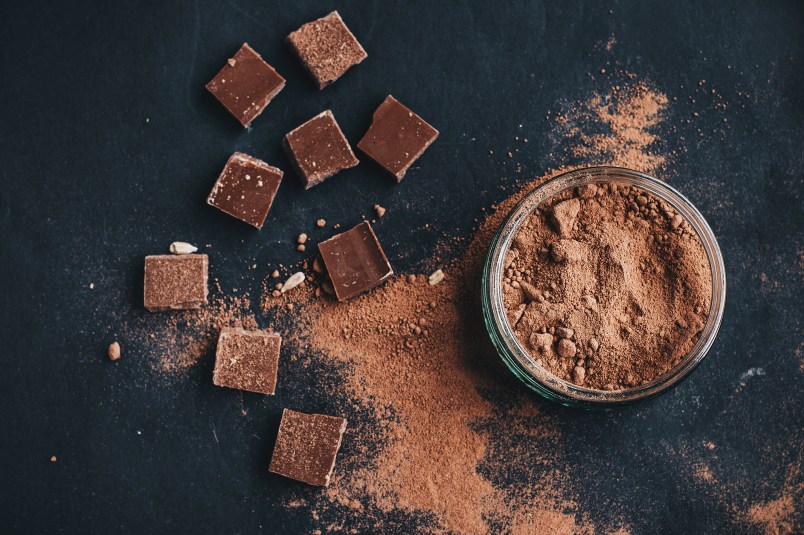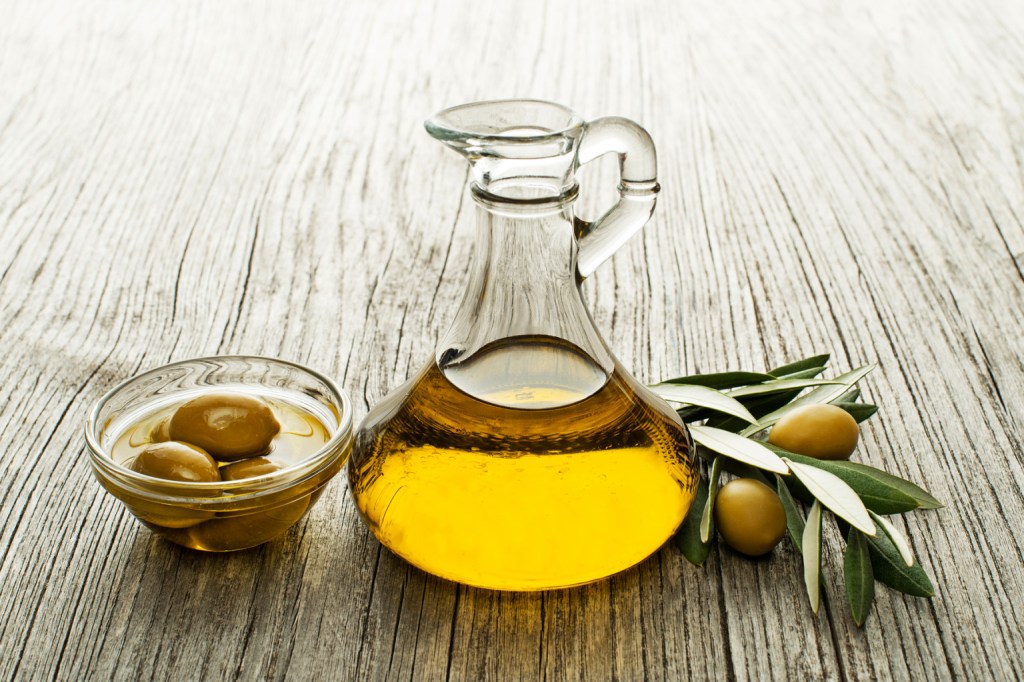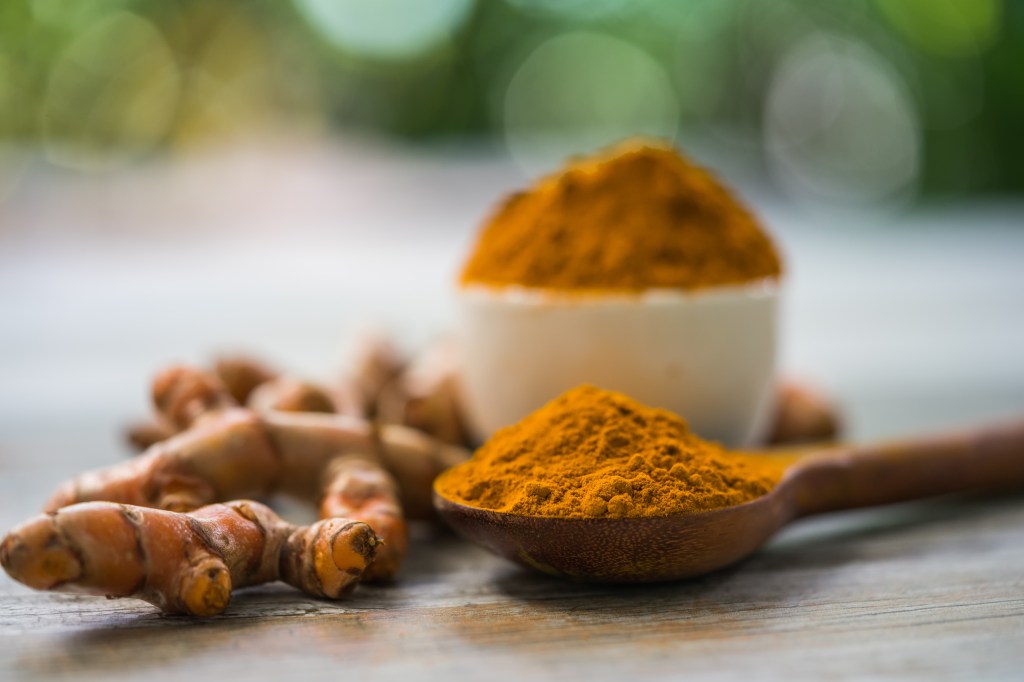7 Foods for Brain Health That Fight Memory Loss and Cognitive Impairment
Ward off Alzheimer's naturally.

Of the things we need to focus more on as we age, our brains take center stage. With the numbers of people living with conditions like Alzheimer’s rising, it’s important that we’re taking as many preventative measures as we possibly can. Luckily, research shows us that there are specific foods for brain health that can help us protect our precious cargo as time goes along, and a few simple tweaks can go a long way.
The brain requires many different nutrients to function properly. The best foods for brain health tend to be rich in antioxidants, flavanoids, certain vitamins like choline and B vitamins, and healthy fats. Keep scrolling for some of our favorites, and add them to your plate today!
The 7 Best Foods for Brain Health

Olive Oil
Extra virgin olive oil is a nutrient powerhouse when eaten raw (that is, not heated over a stove or in an oven). Raw olive oil contains powerful antioxidants and fatty acids that have shown to boost brain health.
One 2017 study even showed that consumption of extra-virgin olive oil protects memory and learning ability, while also reducing the formation of amyloid-beta plaques and neurofibrillary tangles in the brain, which are major markers of Alzheimer’s disease.
Since the brain is made up primarily of fat, consuming enough fatty acids in one’s diet can have major protective effects against brain aging. Olive oil contains a specific type of monounsaturated fat called oleic acid, which makes up 73 percent of the oil. Oleic acid has also been found to have benefits for the brain. Try drizzling some EVOO over your salads or cooked veggies for a boost!
Nuts
Go nuts for nuts — they’ll give your brain a major boost! Studies have shown that adding two spoons of nuts (that’s any kind!) to your diet per day can have neuroprotective benefits, probably because of their antioxidant, healthy fat, and vitamin E content. Vitamin E protects from mental decline because it shields brain cell membranes from free radical damage.
Walnuts, in particular, are rich in omega-3 fats — another nutrient that’s significantly associated with healthier brain aging.

Eggs
Before you reach for the egg whites at the grocery store, check this out. Eggs, especially the yolks, are rich in several nutrients that protect your brain. Specifically, they contain essential B vitamins, choline, and folate.
Research indicates that adequate intake of B vitamins may slow the progression of mental decline in older adults. Vitamin B12 is plays a role in regulating sugar levels in the brain. Just as well, being deficient in folate (also known as vitamin B9) and B12 has specifically been linked to depression.
Studies also show that being deficient in folate is common in elderly people struggling with dementia, and getting more folate has shown to slow down age-related mental decline.
Choline, when ingested, gets converted into acetylcholine — a neurotransmitter that regulates your mood and memory. A growing body of research has shown that eating more choline has a positive effect on memory and cognitive performance. Most people don’t get enough choline in their diets, and since eggs are a top source, including them in your routine is an easy way to protect your brain!
Fatty Fish
Fatty fish like salmon, mackerel, sardines, and trout are some of the best foods for brain health because. they’re rich in omega-3s. Omega-3 fatty acids, which you can only get from your diet, play an important role for your brain. 60 percent of our brains are made up of fat, about half of which is comprised of omega-3s.
Omega-3s are important for learning and memory because they’re used to build our brain and nerve cells. Not getting enough omega-3s has been linked to learning impairments and conditions like depression. Getting more omega-3s has demonstrated an ability to slow down age-related mental decline and help ward off Alzheimer’s. Specifically, higher intake of fatty fish has been shown to increase something called “gray matter” in the brain, which controls emotion, decision making, and memory.
Berries
You don’t have to stay away from all sweet treats if you’re trying to protect your brain. In fact, naturally delicious berries contain powerful compounds that boost brain health. Berries like blueberries, blackberries, and raspberries contain anthocyanins — plant compounds that have anti-inflammatory and antioxidant effects.
Inflammation in the brain can cause mental decline and memory loss, so including anti-inflammatory foods like berries in your diet is a great way to fight the issue. Similarly, antioxidants help to fight oxidative stress in the brain — another key marker of cognitive impairment and neurodegenerative diseases like Alzheimer’s.
More specifically, studies have shown that the antioxidants in blueberries help improve communication between brain cells. Results from other studies suggest that eating blueberries helps to boost memory and could even delay short-term memory loss. Pretty impressive!

Spices
Adding spices like turmeric, sage, and cinnamon to your routine may also help improve your brain health .
Turmeric, or more specifically, curcumin (which is the active ingredient in turmeric) has been shown to improve memory, relieve symptoms of depression, and stimulate the production of brain-derived neurotrophic factor (BDNF) — a hormone which helps our brain cells grow. It’s even been found to be particularly beneficial for those already struggling with Alzheimer’s disease.
While sage might not be at the very front of your spice cabinet, you might want to start including it in some butternut squash or warm pasta recipes this season. Some research suggests that plant compounds in the spice might improve brain function. Findings from one review of studies suggest that sage may be beneficial in the treatment of Alzheimer’s disease, since higher intake showed benefits on cognitive and neurological function.
Cinnamon, which is delicious sprinkled into an apple pie or atop a pumpkin spice latte, could also help you keep your brain power over time. Cinnamon contains a hefty amount of manganese, which is another antioxidant nutrient that’s shown to be beneficial for the brain. Studies indicate that even the smell of cinnamon may help improve memory!
Chocolate
Great news for chocolate lovers! Chocolate — actually, dark chocolate — contains several brain boosting chemicals you’ll want to take advantage of. Raw cocoa, which is found in high amounts in dark chocolate, contains flavanoids, antioxidants, and some caffeine, which are all said to be good for the brain.
According to some research, the flavonoids in chocolate accumulate in areas of the brain associated with memory and learning — which may help enhance memory and slow down cognitive decline. Findings from other studies seem to back this up. One in particular found that subjects who consumed more chocolate performed better at a variety of mental tasks, some involving memory.
So the next time you’re reaching for a snack or making dinner plans, remember this list of the best foods for brain health. They will not only be delicious additions to your plate, but ones that will do your body good in the long run. Here’s to a long, healthy, happy life!













